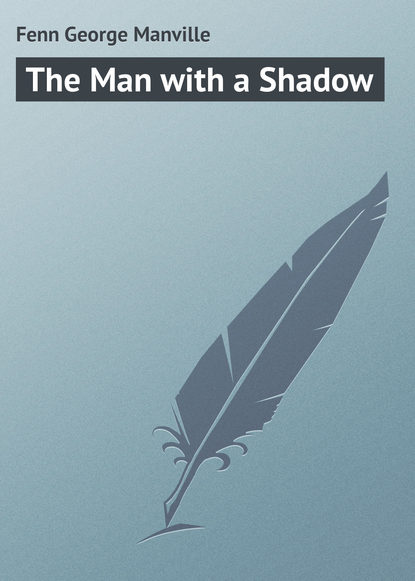По всем вопросам обращайтесь на: info@litportal.ru
(©) 2003-2025.
✖
The Man with a Shadow
Настройки чтения
Размер шрифта
Высота строк
Поля
“Nonsense!”
“It is quite true, Mr North,” said Mary, smiling.
“There, sir, you hear. Then you don’t take enough exercise.”
“Indeed, but I do. I spend half my time going about.”
“Visiting the poor,” cried the doctor. “Harassing yourself with other folks’ troubles, and listening to endless stories of worry.”
“Yes, Mr North, quite true.”
“What nonsense, Mary!” cried the curate piteously. “I must do my duty.”
“Of course, my dear sir, so do it; but don’t overdo it. Recipe – ”
“I won’t take it,” said the curate.
“Miss Salis here shall make you, sir. Recipe: ‘One good cigar or two pipes of bird’s-eye per diem, and three hours to be spent in gardening or fishing every day.’”
Mary’s eyes brightened in forgetfulness of her own trouble as she rejoiced in the advice given to her brother.
“It’s all rubbish, North. I’ve no time to give to fishing or gardening. As to the cigar, I might manage that.”
“Pills no use without the draught,” said the doctor.
“But you a doctor, and prescribe tobacco – a poison!”
“Does people good to poison them a little when they’re out of order.”
“But May grumbles as it is, and is never satisfied. What will he say if he hears of my smoking, and pottering about with a fishing-rod?”
“Tell May to mind his points at whist and leave us alone. There, I must be off. Take my advice, too, about the mare. I shall always hate her for the injury she did to poor Miss Salis here. Good-bye, both of you.”
“Stop a minute,” said the curate. “What about yourself?”
“Well, what about myself?”
“The great idea – the crotchet – the cr – ”
“Well, say it – the craze, man! Every inventor is considered a lunatic till his invention works. Wait, my dear fellow – wait. I may astonish you yet. Good-bye, Miss Salis.”
He shook hands, and left the Rectory-parlour with Salis, the saddle creaking loudly as he mounted and then rode away.
“Good fellow, Horace,” sighed the curate, “but only fit for a West End practice, among people with plenty of time and money. I fancy myself smoking on the river bank, throwing flies and pitching in ground bait. It’s absurd!”
“Poor Miss Salis!” said Mary to herself, as she repeated the doctor’s sympathetic, pitying words; and it was forced upon her more and more plainly in what light he regarded her. She was his patient – nothing more. No; this was unjust, for he always treated her most warmly – as a friend – almost as a sister.
But her old hopes and aspirations seemed to be dead for ever, without promise of revival.
At that moment the curate returned.
“Poor Leo!” he said. “I could not do that,” as he again thought of how attached she had become to the mare, and how the handsome little creature had seemed to divert her attention from the past.
“It would not do, Mary,” he said aloud. “Poor girl! I seem to have been very hard upon her about Tom Candlish, and it would be too bad to deprive her of the mare.”
“She appears very fond of it,” said Mary gravely.
“And the more fond she gets of it the less she thinks about anything else, eh?” Mary was silent.
“She never mentions him to you now?”
“No, Hartley.”
“Hah! That’s a good job. It was hard work and painful; but I nipped that in the bud.”
Mary was silent, and looked at her brother uneasily.
“Well, what is it, dear? Not comfortable?”
“Yes, Hartley, I am quite comfortable,” said Mary, smiling sadly.
“But you looked at me in a peculiar way. You don’t believe that Leo thinks about him now?”
“I don’t know, Hartley. I am not sure.”
“Oh! but I am. It’s all right, my dear. The girl’s ideas are quite changed now, and I am beginning to be hopeful that she thinks a little of North. Why, my dear Mary, how ghastly pale you do look to-day. Are you worse?”
“No, no, dear; indeed no. I – I fancy I am getting better.”
“That’s right; but I am trespassing on you by talking too much. How thoughtless man can be!”
“And how thoughtful,” said Mary, as she took his hand in hers, and held it to her cheek. “Don’t reproach yourself, Hartley; you give me pain.”
The curate bent down and kissed her, and she leaned back and closed her eyes, so that her brother should not see how they were suffused with tears.
“Patience,” she said softly; “give me patience to be unselfish, and bear my bitter lot.”
Chapter Eleven.
Jonadab Moredock Sees a Ghost
Moredock was better by the next Saturday, and he got up with the intention of having a good long day at the church.
“Must keep friends with the doctor,” he muttered. “Can’t afford to die yet. So much to do first.”
He looked up at his clock, and the clock’s sallow round face looked down at him, pointing out how time was getting on, and kept on its monotonous chick chack, as the old pendulum swung from side to side.
“Mornin’, old Moredock,” cried a cheery rustic voice, and a rough, fair, curly head was thrust in at the doorway, the owner of the body keeping it carefully outside, as he held in at arm’s length an old patched boot, which had evidently been soaked in water to allow for a series of great stitches to be put into the upper leather.











